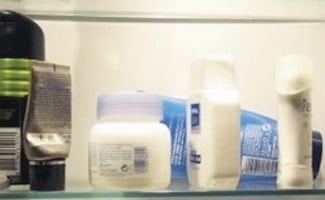Coke and Pepsi Recipes Altered To Have Less 4-Methylimidazole
 Two of the world’s most loved soft drinks are making a few changes and many health conscious consumers are saying that it’s about time. Coca-Cola and Pepsi both are focused on changing how they manufacture one of their soft drink ingredients in order to avoid cancer warning labels being placed on their products.
Two of the world’s most loved soft drinks are making a few changes and many health conscious consumers are saying that it’s about time. Coca-Cola and Pepsi both are focused on changing how they manufacture one of their soft drink ingredients in order to avoid cancer warning labels being placed on their products.
The Buzz over Soft Drinks Containing Carcinogens
Recent changes in California have now deemed 4-methylimidazole (or 4-MEI) to be a carcinogenic product, unfortunately for Coca-Cola and Pepsi; their products contain this chemical in their caramel coloring. Were these two soft drink giants to avoid making changes in their manufacturing process, they would be forced under Californian law to label their products as containing carcinogens. The changes are not being made to the products themselves, manufacturers are making changes to the manufacturing process. These changes result in a new recipe for caramel coloring that has less 4-MEI. This process is already underway in California as a result of the new declaration of 4-methylimidazole as a carcinogen and both Coke and Pepsi are expecting to roll out these changes across the US shortly.
What is 4-Methylimidazole?
4-methylimidazol, also known as 4-MEI, is an organic chemical compound that is formed through the browning of certain foods when the Maillard reaction takes place between amino compounds and carbohydrates. When caramel coloring is produced with ammonia-based processes 4-MEI is produced. The molecular formula for this chemical compound is as follows: H3C–C3H3N2.
4-methylimidazole can be found in a number of different foods and drinks in any concentration from fifty to seven hundred parts per million. The levels of this chemical compound found within coke products as well as many dark beers can be as high as one hundred micrograms per twelve ounces of the beverage.
What Does Research Say About 4-Methylimidazole?
The research on 4-Methylimidazole is controversial, but it has caused enough concern for California to deem it as a health issue. The majority of research on 4-MEI finds that at extremely high doses it causes a number of ill health effects in animals. At rates of around three hundred and sixty milligrams per kilogram of body weight, researchers have found that rabbits, chickens and mice all exhibit convulsions. In addition to this finding, in the 1960’s a group of cattle were fed with ammoniated sugar-containing cattle feed supplements and exhibited intoxication symptoms. In 2007, another study by the National Toxicology Program found that extremely high doses of 4-MEI were carcinogenic in mice and rats (interestingly though, only female rats).
Does 4-Methylimidazole Pose a Threat to Humans?
Despite the fact that researchers have found a link between high levels of 4-Methylimidazole consumption and various ill health effects in some animals, the FDA claims that there is little threat to humans. According to the US Food and Drug Administration, in order to recreate the levels of 4-MEI that were used in laboratory testing in mice and rats, a human would have to drink over a thousand cans of Coke or Pepsi in a single day.
California Adds 4-MEI to its List of Probable Carcinogens
In January of 2011, California added 4-MEI to its list of probable carcinogens with the stipulation that sixteen micrograms a day posed no significant risk. The problem with those sixteen micrograms is that it is a much lower level than found in popular drink products like Coke and Pepsi. While California stands by its decision to label the current levels of 4-MEI in these drinks as carcinogenic, the food industry has opposed the decision from the start.
Opposition to California’s Carcinogen Labeling by the Food Industry
According to the Food Industry, California’s decision to label 4-Methylimidazole as a carcinogenic compound was a poor one. The food industry has numerous questions about the validity of the study by the National Toxicology Program and deems that more research is necessary before 4-MEI is condemned. The reason behind this decision not to back California’s decision lies in the fact that the claim that 4-MEI is carcinogenic would cost the food industry exorbitant amounts of money. Every product with these caramel coloring agents in them would have to be relabeled as being potentially carcinogenic. Not only would this decision cost ridiculous amounts of money to the food industry, but it would also bankrupt numerous companies and cause something of a mass hysteria among consumers.
Coke and Pepsi Made Product Modifications
It was in March of 2012 that both Coca-Cola and Pepsi made the decision to make changes to their manufacturing process in order to sidestep the need for carcinogenic substance labeling. These changes were made by the soda manufacturing giants instructing their caramel color suppliers modify the manufacturing process of their coloring agents in order to meet the new standards of “safe levels” of 4-MEI in their coloring.
Why are Soft Drink Companies Changing Their Manufacturing Processes?
If the levels of 4-Methylimidazole found in Coke and Pepsi products are not high enough to cause any real concern, why then are these soft drink companies changing their manufacturing process? The simple fact of the matter is that if Coke and Pepsi wished to sell their product in California they had to alter their manufacturing process. Without reducing 4-Methylimidazole content, these companies would have been forced to place warnings on their products labeling them as possible carcinogens. Such labels would most likely cause a massive decline in product sales and the lost revenue for these soft drink giants would be devastating. Interestingly enough, while these corporate giants are concerned enough to make manufacturing changes to their products within the United States, they claim no plans for altering manufacturing processes in Europe. According to a statement by the Coca-Cola Company, no other regulatory agency around the world with the exception of California has found the presence of 4-Methylimidazole an issue.



